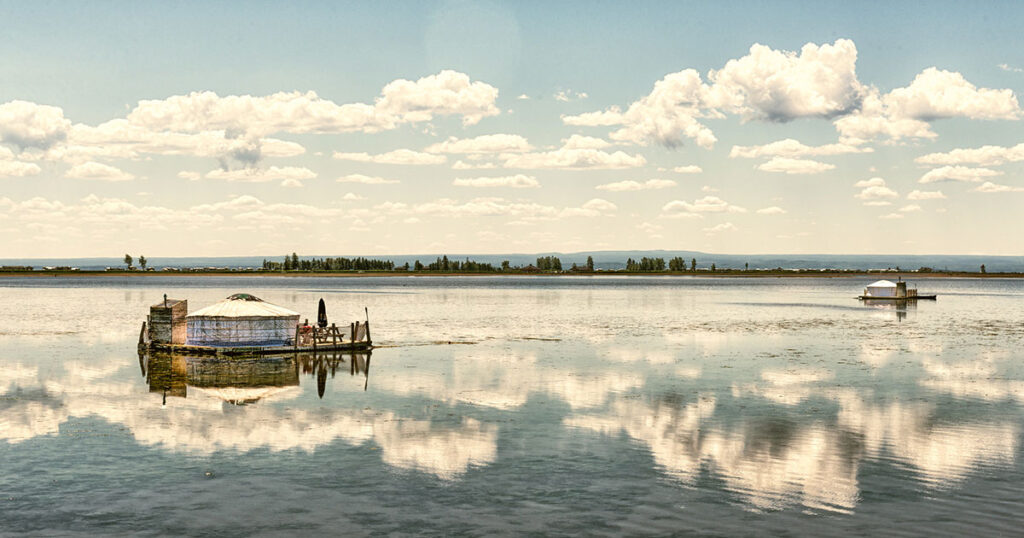
“Which countries would you like to visit?” I asked the students in my upper-intermediate high school class, in preparation for a reading about Mongolia.
“Can we choose more than one?” a girl asked, and I said of course, choose a couple. Why make life harder than it has to be?
The class consists of four students—three 16-year-old girls and one 14-year-old boy, who stands out not only because of his sex and age, but also because he is the best student of the group. After a minute of deliberation, the students named a few expected countries and a few surprising ones. No one wanted to visit any country in Africa besides Egypt, and no country in South America. New Zealand was named by two of the students. Mongolia was not named at all.
In fact, only the 14-year-old even knew where Mongolia was. He said he’d learned about it from a YouTube video. “Can you tell your classmates,” I asked him, “what you know about Mongolia?”
The student twisted in his seat to point out the country’s whereabouts on the wall map above their heads. “Eastern Asia,” he said, squinting behind his glasses. “There,” he said, pointing. He said the country had big open spaces called Steppes, was full of herders who lived in yurts, and had once been a great empire under the rule of Genghis Khan, who had united the area’s tribes and conquered territory as far west as Europe. One of the girls said that she’d never heard of Genghis Khan, and the other two agreed that they did not know the name. “You’ve never heard of him?” I asked, and they shook their heads. I asked the boy to tell us what he knew about Genghis Khan. He would probably know more than I did.
He was ready, and immediately volunteered the theory that had Genghis Khan’s marauding armies not slaughtered so many people, we’d be much worse off today.
Of course—more room for us without all those millions upon millions of descendants from the millions of people massacred by the armies of Genghis Khan. Is that what you mean? No, the student said—it was that current carbon dioxide levels in the world would be much higher if all those people hadn’t been killed. I had not heard this. Genghis Khan lowered greenhouse gases? Yes, the boy said, because he left so much land depopulated, where vast forests grew.
“So we’re lucky those people got slaughtered,” another student said. She had long black hair and a nose ring.
The boy gave his characteristic surprised giggle, as if to say I didn’t say it, you did! He then pointed out that our current problems weren’t exactly of our making. Everyone had contributed to them by existing or diminished them by dying young, without descendants. Later, looking up the statistic the student had cited about carbon dioxide levels, I found several articles claiming that the 200 years of the Mongolian wars had given reforestation a chance to remove a huge amount of carbon from the atmosphere—about 700 million tons. The Black Death, responsible for about 25 million deaths in Europe in just seven years, had not helped nearly as much.
I thought about those millions of people wiped out in the Mongolian wars, and about their potential descendants, and the descendants of the descendants never born. How many by now? I pictured steel balls lined up in the trough of a pinball machine, waiting to be fired into the game with a resounding clang before they go zinging around the surface, crashing into one obstacle or another, a noisy spectacle, ending when the ball falls into a hole. For the player, noise and spectacle mean points. For the equipment, a lot of use is wear and tear. And for the balls?
They all look the same, those balls, but might not one be different? Had my student considered whether, among all those lives that never were, there might have been one that, instead of swelling the problems facing humanity today, would have shrunk them? A person bringing some invention or some insight unknown to us so far? Whose contribution would more than offset any environmental benefit of nonexistence? Someone to inspire us to see our situation as deadly serious and to act faster? From among the villagers cut down, was there not one who would have been the ancestor of someone who might have already saved us? I like to imagine so. Someone to make four students and their English teacher, sitting in a classroom on a cold gray afternoon with the streetlights just coming on, who were more concerned about a grammar lesson than about the war in Ukraine, Arctic blasts across the United States, rising sea temperatures and widening gulfs between rich and poor, a devastating earthquake in Turkey and Syria, and all the rest of the world’s troubles deepening outside the classroom—someone to make us less ludicrous by shrinking the predicament we hardly believe in, though we could talk about it. But since we are ludicrous, let us at least appreciate the joke of Genghis Khan riding to the rescue, lopping off heads and burning villages. His intervention hangs in the balance—his gift grows with every unborn generation but shrinks with every unborn savior.

